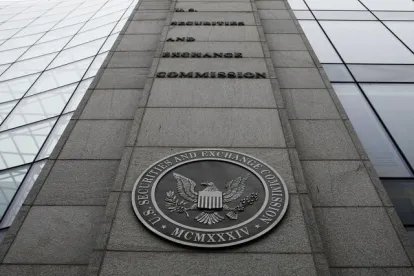The U.S. Securities and Exchange Commission (SEC) recently announced a settlement with Hitachi, Ltd. over allegations that the company sold shares in a South African subsidiary to a front company for the African National Congress (ANC), the ruling political party in that country, in order to win government contracts. In court papers filed on September 28, 2015, alongside the announcement of a settlement, the SEC described a scheme in which Hitachi sold twenty-five percent of the stock in its local subsidiary to a front company, entered into a “success fee” arrangement with the front company, and later won lucrative contracts based on its connection to the company. More specifically, Hitachi eventually won $5.6 billion in power station contracts and paid the front company $6 million in dividends and success fees. Hitachi will pay $19 million to settle the FCPA charges with the SEC. This case is another reminder to companies and their counsel that partnerships with local businesses should be diligenced carefully for corruption vulnerabilities, particularly where partner businesses are given dividends or bonus payments based on performance and are chosen for their government ties.
The scheme involving Hitachi began in 2005 when Hitachi, an international supplier of power station boilers, first sought to expand into the South African power market. To bolster its chances of winning business in the new market, Hitachi created a local subsidiary, Hitachi Power Africa (Pty) Ltd. (HPA), and decided to partner with a local company under the country’s Black Economic Empowerment Act (BEE). The BEE granted favorable status in the procurement process to companies partially owned by black South African entities. HPA targeted Chancellor House Holdings (Pty) Ltd. (Chancellor) because the company was known to have close ties to the government-owned utility, Eskom, came recommended by ANC officials, and was known to have “ANC influence.” HPA’s due diligence of Chancellor lasted only a handful of days and was not conducted in accordance with standard Hitachi procedure. Indeed, HPA could not locate a copy of its due diligence report when the SEC later investigated the company over its dealings in South Africa. To satisfy the BEE requirements, HPA sold 25% of its shares to Chancellor. In addition to the equity shares, HPA entered into a “success fee” arrangement with Chancellor, in which Chancellor would receive additional fees based on contracts secured with its assistance.
From 2006 until 2014, when HPA repurchased Chancellor’s shares, the two companies bid on and won several lucrative contracts totaling $5.6 billion. Through dividends and success fees, HPA paid more than $6 million to Chancellor. During this period, local South African newspapers ran stories highlighting the ties between HPA, Chancellor, and the ANC, and criticizing the apparent conflict of interest. In response, Chancellor eventually agreed not to distribute any of its profits from HPA to political officials. Even after news reports criticizing the relationship between the businesses, however, HPA regularly pushed Chancellor to exert its influence over ANC officials to secure contracts. To cover its tracks, HPA categorized the success fees that it paid to Chancellor as miscellaneous consulting expenses and failed to maintain proper documentation. The SEC’s charges against Hitachi relate to its failure to maintain adequate internal accounting controls and its failure to keep proper books and records.
This case is a reminder to companies that they must be diligent in finding and investigating possible red-flags – both before and after a deal has been completed. Before HPA started working with Chancellor, several alarm bells should have alerted decision-makers to the possibility of trouble. First, a number of high-level Chancellor employees had close business and personal ties to ANC and Eskom officials that were apparent to HPA and, in fact, were a key reason HPA enlisted Chancellor. Second, Chancellor did not have any operational or engineering capability that would have assisted HPA in performing the contract awarded. Partnering with a third-party for its contacts alone can often attract unwanted attention from prosecutors, as those relationships are ripe for possible FCPA violations. In its Complaint against Hitachi, the SEC highlighted that Hitachi “prioritized a prospective partner’s ability to exert political influence over engineering or operational capacity.” Later, once the two companies had started working together, HPA did not cut ties with Chancellor even after reports in several local newspapers revealed that Chancellor was being used as a front by the ANC. Some of the reports identified a scheme remarkably similar to the one involving Hitachi: Chancellor would acquire “empowerment” stakes in businesses pursuing government contracts and then collect profits when the joint ventures won ANC contracts. Other reports specifically pointed to the Hitachi-Chancellor relationship as an example of wrongdoing in the procurement process. At one point, the Secretary General of the ANC publically acknowledged that Chancellor was a funding “vehicle” of the ANC. The decision by Hitachi to continue working with Chancellor can be considered a failure on the part of those that decided to maintain the relationship with Chancellor, but it is also a cautionary tale for compliance and legal counsel. For them, Hitachi’s settlement is a reminder that ongoing due diligence, especially in response to new public information, is an essential part of any compliance and risk-management scheme.
You can read the SEC’s civil complaint against Hitachi here.




 />i
/>i
